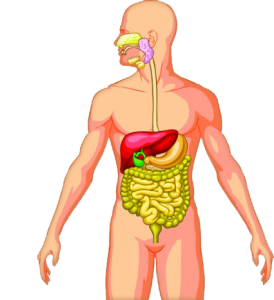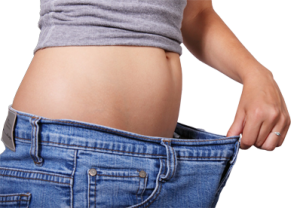To see how professional the concept is, understand it. It is very simple, we asked a Doctor in gastroenterology to describe how it works.
The digestion process
 Eating correctly has a fundamental effect on your health and represents the basis of a healthy lifestyle. Without a proper diet and eating habits illnesses and symptoms soon appear that, in many cases, are difficult to trace back to the way you eat, although this is where they originate. Appropriate nutrient intake gives you good physical and intellectual strength, while eating incorrectly may cause obesity, digestion disorders and abdominal pain. In the following we focus not on diet but on the correct way and process of eating and outline the digestion process.
Eating correctly has a fundamental effect on your health and represents the basis of a healthy lifestyle. Without a proper diet and eating habits illnesses and symptoms soon appear that, in many cases, are difficult to trace back to the way you eat, although this is where they originate. Appropriate nutrient intake gives you good physical and intellectual strength, while eating incorrectly may cause obesity, digestion disorders and abdominal pain. In the following we focus not on diet but on the correct way and process of eating and outline the digestion process.
Digestion starts in the mouth at the moment you take a bite of something. Food starts to breakdown here with the help of the digestion enzyme in saliva, which starts the digestion of carbohydrates. It is very important to promote further, good digestion by chewing your food thoroughly. In this way saliva comes into contact with the food you eat over a larger surface area, which ensures better preparation for the later digestion process and for swallowing as well.
The food you have chewed travels via your esophagus to the stomach, where the digestion process is continued with the help of gastric acid and pepsin, which initiates the breaking down of the proteins present in food. It is important to note that well chewed food is able to get into contact with enzymes over a larger surface area, which promotes further digestion and absorption. The continuous movement of the muscles in the wall of the stomach mixes the stomach contents, which also aids the breaking down of food.
 At the beginning of the small intestines the nutrients that are pre-digested and mixed in the stomach meet bile from the liver and enzymes produced in the pancreas and then the breakdown of the proteins, carbohydrates and fats continues all the way to the molecular level.
At the beginning of the small intestines the nutrients that are pre-digested and mixed in the stomach meet bile from the liver and enzymes produced in the pancreas and then the breakdown of the proteins, carbohydrates and fats continues all the way to the molecular level.
Food broken down to the molecular level is absorbed on the surface of the villi, small finger-like projections in the intestines, which, if they were spread out, would more or less cover a whole tennis court. If your gastric juices are able to successfully process food better, then it is utilized and absorbed more effectively and to a greater extent.
In short: the more you chew your food, the better and easier your body is able to digest it. On the basis of the above you can see that this chewing time is not a generally specified amount of time: it is related to the characteristics of the food we consume. Different foods can be primarily classified into groups according to their “hardness”, and on this basis Chew it Well also determines the time you need to spend on chewing. Thoroughly chewing your food is essential for those suffering with stomach problems, those who have had stomach surgery or for people who are struggling with other digestion disorders.
How does Chew it Well help you to lose weight?
 On the basis of the above, better digestion and absorption also means that your body is able to utilize more from the same amount of food, which means more thorough chewing can even result in you putting on weight. This is very true.
On the basis of the above, better digestion and absorption also means that your body is able to utilize more from the same amount of food, which means more thorough chewing can even result in you putting on weight. This is very true.
Chew it Well helps you to lose weight by giving your body sufficient time for a feeling of being full to develop; in other words, with longer chewing/eating cycles you can satisfy your appetite even with a smaller amount of food. If at this time – i.e. when you are full – you stop eating, the amount of energy you take in is less than if you suddenly “wolf down” your food, this means that you can prevent yourself putting on weight more easily and without having to do without eating what you like. In his successful book Horace Fletcher wrote already in 1895 that if you want to lose weight you should not place the emphasis on the amount and type of food you eat but on thoroughly chewing it. In his opinion you should chew every bite 32 times. This may seem to be an exaggeration, but besides thorough chewing the other important task is to think after each and every bite “have I had enough yet? Do I really need this next spoonful?”
